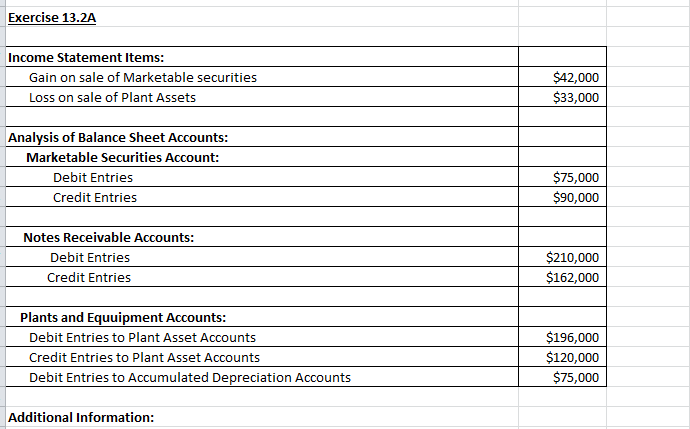
If your portfolio were a toolbox, marketable securities would be the versatile multi-tool that can be used in many situations and are right there when you need them. That’s the essence of marketable securities—financial instruments that can be swiftly and easily converted to cash without a significant loss. Another reason that marketable securities trade with ease is that many marketable securities trade on publicly-traded exchanges that are subject to government regulation. For instance, the Securities and Exchange Commission oversees and enforces the fair trading of several security markets for marketable securities in the United States. You’re making yourself available so that you can act when the time comes.
Marketable Security: What It is, How It Works
Examples include savings bonds, limited partnership or private company shares, and complex derivatives. The quick ratio factors in only quick assets into its evaluation of how liquid a company is. Quick assets are defined as securities that can be more easily converted into cash than current assets.

Holding period:
Customers must read and understand the Characteristics and Risks of Standardized Options before engaging in any options trading strategies. Options transactions are often complex and may involve the potential of losing the entire investment in a relatively short period of time. Certain complex options strategies carry additional risk, including the potential for losses that may exceed the original investment amount. Warren Buffett understands, better than most, the importance of capital returns on investments and the need to find greater and greater investments to generate those returns.
Learning Accounting
Liquidity is the ability to convert assets into cash and use them as an intermediary in other economic activities. The security is further made liquid by its relative supply and demand in the market. Because marketable securities can be sold quickly with price quotes available instantly, they typically have a lower rate of return than less liquid assets. Marketable securities are liquid financial instruments that can be quickly converted into cash at a reasonable price.
There are many features of these securities, but the two most important ones that set them apart from the rest are highlighted below. In other words, it’s like the corporate equivalent of how long you could live off your paycheck without dipping into your savings.
- Insurance companies earn much of their income from the premiums it collects and a substantial portion from their investment portfolios.
- These announcements make specific cash commitments, such as dividend payments, before they are declared.
- Some companies have different goals with their marketable securities, and there are multiple accounting definitions to help investors understand those goals.
- There is, however, a big issue in keeping up with changes in market values.
- Held-to-maturity securities may be listed at cost, but this has become fairly uncommon.
What Are Marketable Securities in Accounting?
Below is a guide to marketable securities, including examples, where to find a company’s marketable securities listed, and how they’re used in liquidity ratios. If, however, a company invests in another company’s equity in order to acquire or control that company, the securities aren’t considered marketable equity securities. The company instead lists them as a long-term investment on its balance sheet. Inventory needs to be sold in order to generate cash and in some cases, inventory is difficult to sell. Keep in mind, other fees such as trading (regulatory/exchange) fees, wire transfer fees, and paper statement fees may apply to your brokerage account.
But those gains or losses from the sales have to go somewhere and flow to the income statement. They list a gain or loss on trading securities on the income statement. Don’t get bogged down in all the jargon related to the more complicated financial companies such as insurance companies or banks.
Held-to-maturity securities may be listed at cost, but this has become fairly uncommon. Marketable securities are a component of current assets on a firm’s balance sheet. It is part of a figure that helps determine how liquid a company is, its ability to pay expenses, or pay down debt if it needs to liquidate assets into cash to do so. Another alternative is to classify debt securities as Available-for-Sale. These securities are highly liquid as they are easily converted to cash without impacting the market valuation. The company simply sells these securities in the market and they can receive the cash within a short time.
The liquidity of marketable securities comes from the fact that the maturities tend to be less than one year, and that the rates at which they can be bought or sold have little effect on prices. Apple recorded $53.87B in marketable securities on the current assets section of its balance sheet for the quarter that ended March 28, 2020. The company included short-term investments (like U.S. Treasury securities, commercial paper, and asset-backed securities) with a holding period under a year. When it comes to accounting, marketable securities are classified as current assets. This means that they are often included in working capital calculations on a company’s financial statements.
ETFs are marketable securities that allow an investor to buy and sell collections of other assets. They are classified as marketable securities because they are traded on public exchanges. However, ETFs may actually also hold assets that don’t cost of goods sold definition count as marketable securities. They are the equity securities of a public company that is held by another corporation. Buying and selling marketable securities typically involves transaction costs such as brokerage fees and commissions.